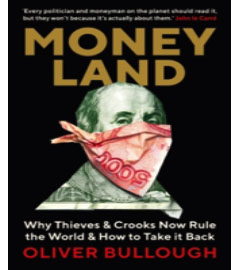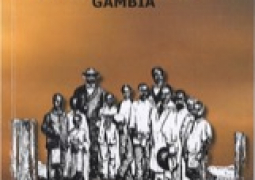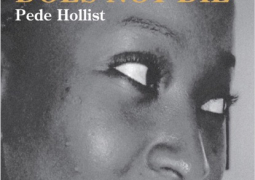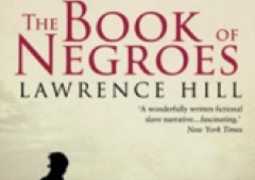
In our era of oligarchs and gangsters, murdered journalists and outgunned tax inspectors, Putin and Trump, how do you write a critical book about money and power in the world that doesn’t feel utterly futile? It’s a question Oliver Bullough often asks himself. In this volume he lists some of the enterprises that operated in Ukraine during the infamous presidency of Viktor Yanukovych from 2010 to 2014: “his coal mining companies ... which were [for legal purposes] owned in the Caribbean”; a “medicine racket … run out of Cyprus”; an “illegal arms trade traced back to Scotland”; a “market selling knock-off designer goods … legally owned in the Seychelles”. The sheer complexity of corruption under Yanukovych, Bullough writes, “makes me dizzy, like a maths problem too complicated to understand, a sinkhole opening at my feet”. We are only on page nine.
Then there is the problem of overfamiliarity. Tax evasion, illicit financial networks, parasitic elites and many of the other subjects of this ambitious book are not new, Bullough admits: “Wealthy people have always tried to keep their money out of the hands of government.” More recently, the global growth in secrecy and criminality made possible by modern capitalism and the end of Soviet communism have become such mainstream topics that this year they were given their own primetime TV drama, BBC1’s McMafia, which was loosely based on a successful investigative book by Misha Glenny.
You wish he’d written about the offshore manoeuvrings of the many tax-averse mainstream corporations as well
Finally, there is the problem of description. Corrupt rulers and organised crime bosses tend to have predictable tastes. When Bullough visits one of Yanukovych’s palaces shortly after Putin’s ally was deposed, he finds “fountains … waterfalls … statues … exotic pheasants. It was a temple of tastelessness, a cathedral of kitsch”. In Bullough’s weary cataloguing and alliteration there is already a kind of defeat.
The book picks up once he stops describing and starts explaining. Bullough’s underlying aim is to anatomise the “offshore” economy: the growing maze of tax havens and shell companies and legal blind spots that in recent decades has hugely damaged many relatively poor countries such as Ukraine, and benefited rich places such as the City of London, while being only hazily understood by most of us.
Bullough approaches his forbidding task by coming up with clear, snappy metaphors for the offshore world and how it works. He explains them, and then deploys them again and again, like catchphrases or portentous images in a novel. The central one is “Money land”. He conceives of it as a secret, parallel world, almost like something from a fairytale: “The very wealthiest people … have tunnelled into this new land that lies beneath all our nation states, where borders have vanished. They move their money … and themselves wherever they wish, picking and choosing which countries’ laws they wish to live by.”
Passports are sold to the rich by small countries hungry for income, such as Malta and the Caribbean federation of St Kitts and Nevis. The process is euphemistically advertised by middlemen as “citizenship by investment”. While most adults pay taxes, in Money land the rich minimise their contribution by setting up trusts, often based in Jersey – another pretty and secretive island. While many businesses remain tangible, regulated entities, in Money land opaque shell companies are formed and reformed so quickly that even the most powerful states can’t keep track of them and their assets. In 2017, the US Government Accountability Office found that “the US government had no idea who owned ... one-third of the buildings” it “leased for high-security purposes”.
Bullough’s concise, confident book is full of such jaw-dropping examples. It also covers a lot of historical ground. A single early chapter describes the anarchic, elite-driven nature of the world economy of the early 20th century – a less technologically advanced version of today’s – which led ultimately to the Great Depression and fascism; then the more regulated and stable economy that replaced it, from the mid-40s to the mid-70s; and then the ways in which it was deliberately destabilised again by ingenious bankers in Switzerland and the City, to the benefit of furtive wealthy interests.
Some of this narrative is a bit too neat. The political forces for and against offshore capitalism, and how they ebbed and flowed during the 20th century are scarcely mentioned. Instead, as if narrating a documentary, Bullough sometimes searches too self-consciously for colourful characters and locations.
But more often his busy and determined reporting from the Caribbean, eastern and western Europe and the US – south-east Asia and the Middle East feature perhaps less than they should – produces memorable and telling scenes. In balmy Nevis, an official of the government’s Financial Services Regulatory Commission responds to his questions, about the use of the island’s extensive banking secrecy laws by “corrupt foreign officials”, with a denial that sounds both legally impregnable and inadvertently revealing: “I can’t tell you that I accept that there have been multiple usages of our structures to facilitate whatever.”
Later, on St Kitts, Bullough visits an elderly seller of spare car parts, a former local politician who for decades has kept minutes of cabinet meetings he attended in “yellow and pink cardboard folders” at the back of his shop. In one of these, Bullough reads: “Ministers agreed that a passport should cost … $50,000 plus a ‘substantial fee’.”
He is surprisingly successful at getting some of the architects of the offshore world to open up, and is sensitive to the fact that some of its users have good reason to avoid governments, such as rich dissidents fearing the politically motivated confiscation of their assets. He also accepts an argument frequently put to him in notorious tax havens: that wealthier, less criticised countries such as Britain have been equally involved in building and maintaining Money land. In London’s hugely expensive Eaton Square alone, he discovers, there are 86 properties owned through “anonymous structures”.
What is to be done about any or all of this? Despite the book’s rousing subtitle, Bullough perhaps predictably devotes only a few pages to this difficult topic. As he writes with typical pithiness: “Money flows across frontiers, but laws do not.” Until this situation changes, the lawyers, bankers and drafters of deliberately loose financial laws will continue to prosper. Meanwhile, governments will continue to be starved of revenue, global inequality will grow, economies will be destabilised and struggling voters will blame everyone – poor immigrants, liberal elites – except those actually responsible for creating the destructive offshore world.
Bullough’s book is pacy, clever and far more entertaining than you’d expect of a work on this subject. Sometimes it moves so fast you suspect that nervous lawyers have been involved. At other times, you wish he’d written about the offshore manoeuvrings of tax-averse mainstream corporations as well. But if you still have any illusions about the wonders of liberated capitalism, Money land will probably cure you.
Available At Timbooktoo Tel: 4494345.




